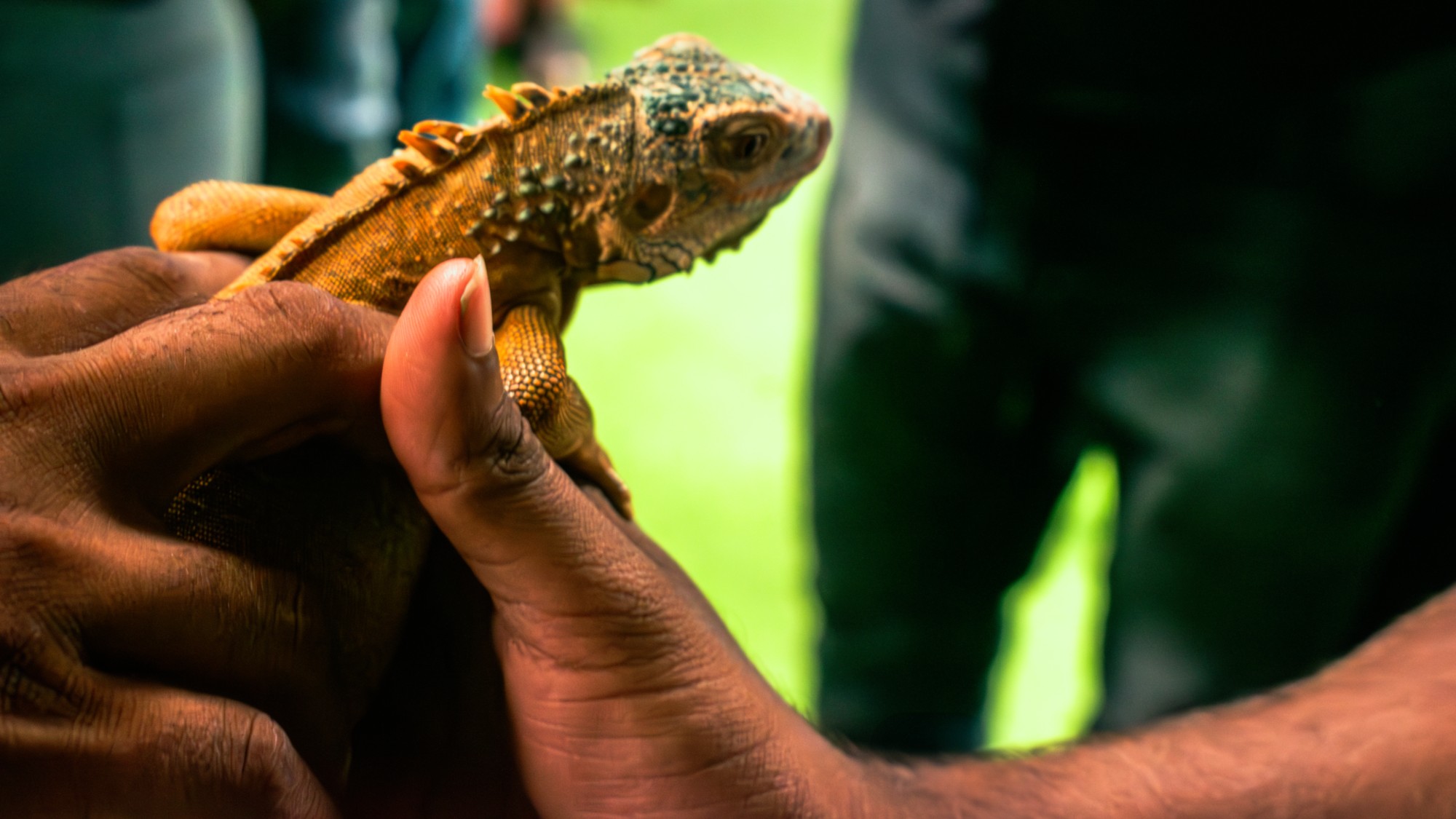Rabbits with 'horns' sighted across Colorado
These creatures are infected with the 'mostly harmless' Shope papilloma virus


A free daily email with the biggest news stories of the day – and the best features from TheWeek.com
You are now subscribed
Your newsletter sign-up was successful
What happened
Rabbits with black, hornlike spikes growing on their heads and other odd or unslightly protuberances are not dangerous and won't infect humans or other species, Colorado Parks and Wildlife said Wednesday, following days of social media posts about sightings of "Frankenstein bunnies," "demon rabbits" and "zombie rabbits" in and around Fort Collins.
Who said what
Rabbits with "wart-like growths" protruding from their faces "like metastasizing horns" may "seem straight out of a low-budget horror film," but they are just infected with the "mostly harmless" Shope papilloma virus, The Associated Press said. The "relatively common" virus, discovered in 1930, has "contributed to scientists' knowledge about the connection between viruses and cancer" and also "likely influenced the centuries-old jackalope myth in North America."
Coloradans are "so used to seeing rabbits, so they're like, 'Oh my god, what is that on its face?'" Parks and Wildlife spokesperson Kara Van Hoose told The New York Times. There is no cure, but the growths don't harm the rabbits unless they spread to the eyes or mouth and interfere with eating, she said, and they typically disappear after the infected animal's immune system kicks in.
What next?
People should avoid feeding or interacting with infected rabbits, especially if they have pet bunnies, but they can appreciate them from a distance, Van Hoose said. "Nature is metal," and "this can be kind of cool-looking on different rabbits."
The Week
Escape your echo chamber. Get the facts behind the news, plus analysis from multiple perspectives.

Sign up for The Week's Free Newsletters
From our morning news briefing to a weekly Good News Newsletter, get the best of The Week delivered directly to your inbox.
From our morning news briefing to a weekly Good News Newsletter, get the best of The Week delivered directly to your inbox.
A free daily email with the biggest news stories of the day – and the best features from TheWeek.com
Peter has worked as a news and culture writer and editor at The Week since the site's launch in 2008. He covers politics, world affairs, religion and cultural currents. His journalism career began as a copy editor at a financial newswire and has included editorial positions at The New York Times Magazine, Facts on File, and Oregon State University.
-
 Local elections 2026: where are they and who is expected to win?
Local elections 2026: where are they and who is expected to win?The Explainer Labour is braced for heavy losses and U-turn on postponing some council elections hasn’t helped the party’s prospects
-
 6 of the world’s most accessible destinations
6 of the world’s most accessible destinationsThe Week Recommends Experience all of Berlin, Singapore and Sydney
-
 How the FCC’s ‘equal time’ rule works
How the FCC’s ‘equal time’ rule worksIn the Spotlight The law is at the heart of the Colbert-CBS conflict
-
 Russia’s ‘cyborg’ spy pigeons
Russia’s ‘cyborg’ spy pigeonsUnder the Radar Moscow neurotech company with Kremlin-linked funding claims to implant neural chips in birds’ brains to control their flight, and create ‘bio-drones’
-
 How roadkill is a surprising boon to scientific research
How roadkill is a surprising boon to scientific researchUnder the radar We can learn from animals without trapping and capturing them
-
 The ocean is getting more acidic — and harming sharks’ teeth
The ocean is getting more acidic — and harming sharks’ teethUnder the Radar ‘There is a corrosion effect on sharks’ teeth,’ the study’s author said
-
 Cows can use tools, scientists report
Cows can use tools, scientists reportSpeed Read The discovery builds on Jane Goodall’s research from the 1960s
-
 Blue Origin launches Mars probes in NASA debut
Blue Origin launches Mars probes in NASA debutSpeed Read The New Glenn rocket is carrying small twin spacecraft toward Mars as part of NASA’s Escapade mission
-
 Dinosaurs were thriving before asteroid, study finds
Dinosaurs were thriving before asteroid, study findsSpeed Read The dinosaurs would not have gone extinct if not for the asteroid
-
 Parthenogenesis: the miracle of 'virgin births' in the animal kingdom
Parthenogenesis: the miracle of 'virgin births' in the animal kingdomThe Explainer Asexual reproduction, in which females reproduce without males by cloning themselves, has been documented in multiple species
-
 SpaceX breaks Starship losing streak in 10th test
SpaceX breaks Starship losing streak in 10th testspeed read The Starship rocket's test flight was largely successful, deploying eight dummy satellites during its hour in space
